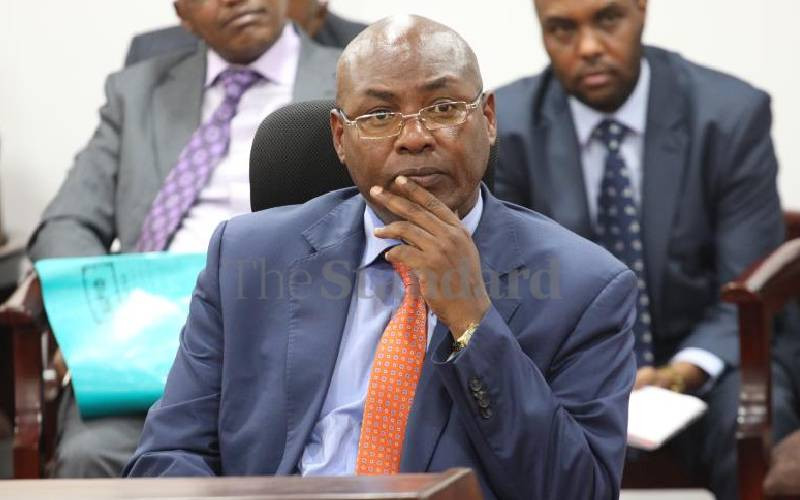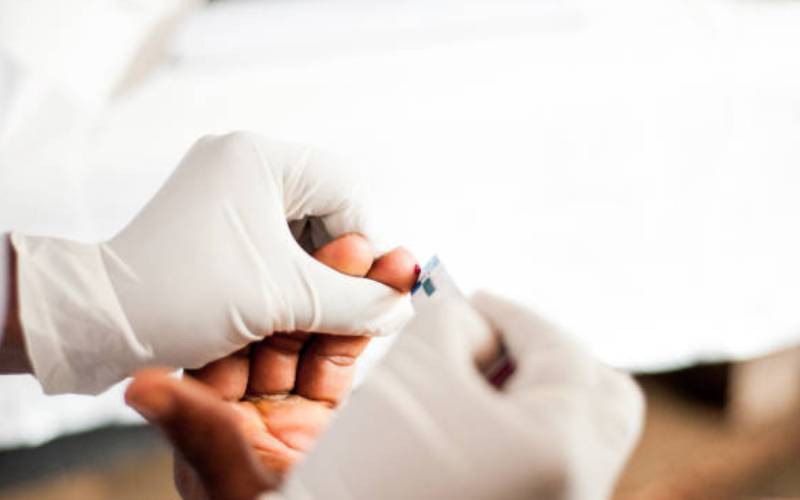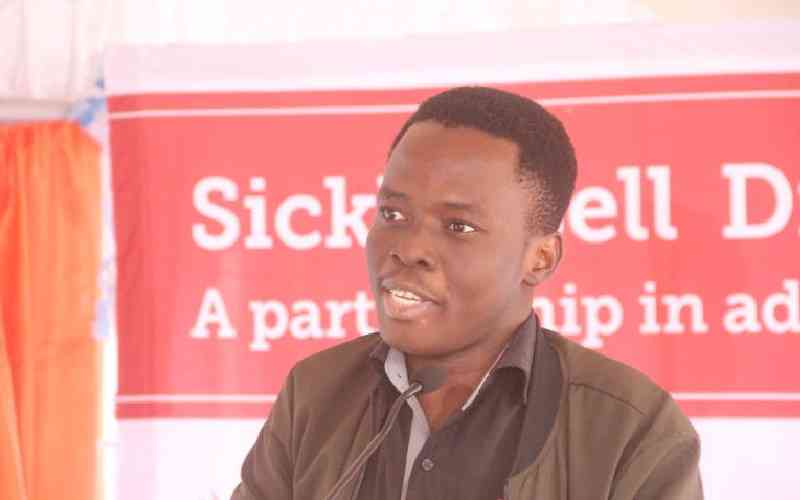
People living with Sickle Cell Disease are pleading with the government to involve them in the policy-making process as they are the ones who know what they go through.
David Saenyi, a sickle cell warrior, urged the Ministry of Health to also include them in the planning of Sickle Cell programmes.
"We feel like we are being neglected, to be honest, if you have plans for us, plan with us," Saenyi urged. "The treatment that we get is not affordable, and if we get the quality is not good at all," he said.
He also noted that being a sickle cell carrier requires one to undergo frequent checkups and involves taking of penicillin pain reliever which is costly.
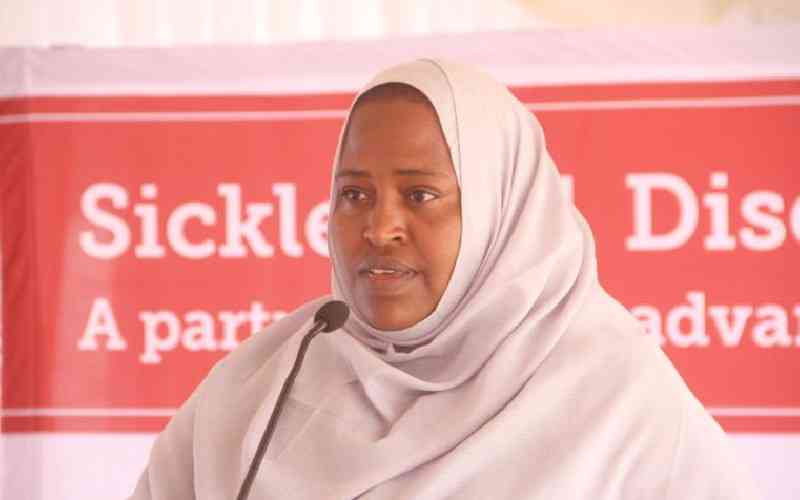
Speaking during the launch of a project to help advance sickle cell disease care in the country, Saenyi pleaded with the Ministry to establish clinics with treatment areas for sickle cell patients because they have been facing a lot of challenges when trying to seek care.
The Sickle Cell Afya Dhabiti project, which was launched on Wednesday at the Mbagathi Sub County Hospital, Nairobi is aimed at reducing the burden of Sickle Cell Disease (SCD) and strengthening health systems for the disease.
The project was initiated by the Ministry of Health, Novartis, the Non-communicable Diseases Alliance of Kenya and the Academic Model Providing Access to Healthcare (AMPATH).
Officials present called for infant screening and the establishment of treatment centres for sickle cell patients.
- Behind the mirth, comedian 'Akuku Danger' is a sickle cell warrior
- How mothers in Migori are battling sickle cell stigma
Keep Reading
The Ministry of Health practitioners promised to partner with relevant stakeholders to spearhead creation awareness by deploying healthcare promoters who would reach the public easily.
Zainabu Gura, the Deputy Director General, the State Department of Medical Services at the Ministry of Health, promised to prioritise increment in finance to cater for sickle cell patients within the counties and national levels.
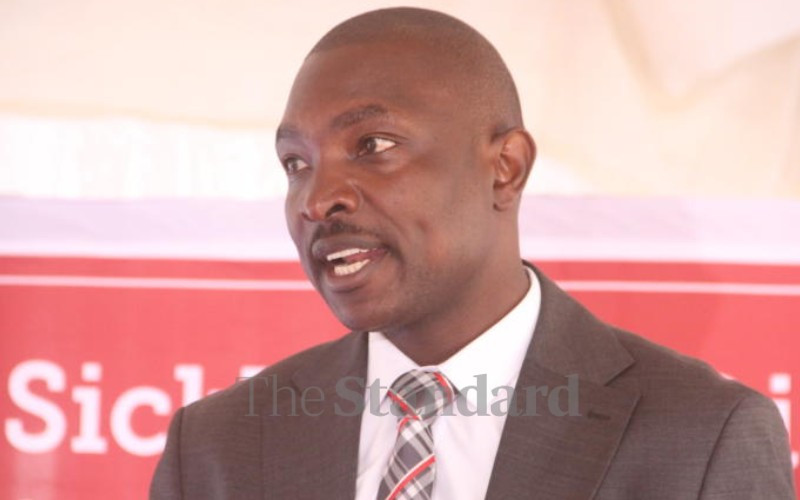
Gura also highlighted that they have laid down measures to cater for kids who are born with this condition because they are entitled to quality healthcare services.
"About 14,000 children are born with sickle cell countrywide and half of them die before celebrating their fifth birthday," she noted.
Gura added that the sickle cell care treatment will not only be limited to 17 proposed counties but will involve all counties because of the intermarriages of people living with the disease and migration cases that happen daily.
Steven Opondo, a representative from Novartis who was the main partner in the launch noted that they are committed to working together to ensure long-term viability and are committed to fighting against sickle cell disease. He said they would continue to support patients, healthcare providers and caregivers through research, access programmes, and educational resources.
"It is against this backdrop that, in 2019, we introduced the Novartis Africa Sickle Cell Disease programme, a multi-stakeholder collaboration aimed at providing comprehensive end-to-end solutions and bridging gaps in healthcare for this neglected disease," Opondo said.
Opondo said that their team is committed to ensuring safe and sustainable access to the disease by modifying therapy that is the standard of care, Hydroxyurea (HU), as part of our sickle cell disease program in Africa.
 The Standard Group Plc is a multi-media organization with investments in media platforms spanning newspaper print
operations, television, radio broadcasting, digital and online services. The Standard Group is recognized as a
leading multi-media house in Kenya with a key influence in matters of national and international interest.
The Standard Group Plc is a multi-media organization with investments in media platforms spanning newspaper print
operations, television, radio broadcasting, digital and online services. The Standard Group is recognized as a
leading multi-media house in Kenya with a key influence in matters of national and international interest.



